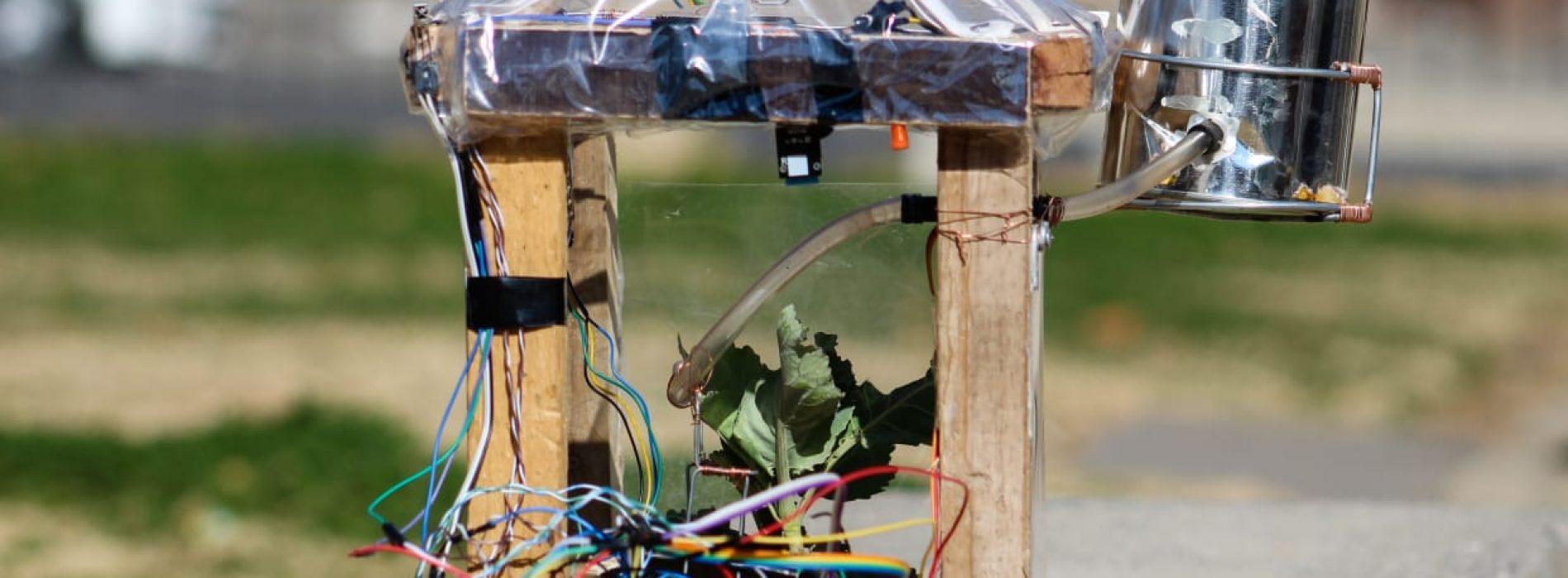Africa-Press – Lesotho. A Computer Systems Engineering student at the National University of Lesotho (NUL is developing a smart greenhouse that could potentially change the agriculture sector.
Thabo Maibi’s greenhouse can provide just enough water for your plants day and night. It can regulate the temperature and humidity. Could you also need light at night so your crops keep growing? At sunset, light automatically turns on for as long as your plants need it.
Maibi’s greenhouse is coming at a time when climate change is turning traditional agriculture upside-down. It is challenges like climate change that inspired Maibi’s innovation.
His idea is borne out of the frustration his family endured as it battled to eke a living from land that was tired and in seasons that had become unpredictable.
The rains were coming either too early or too late. Sometimes it was as if the heavens had been emptied of every drop to drown their crops. At times the crops would shrivel as they waited for the heavens to deliver.
“I grew up in a family that lived on agriculture,” Maibi said.
“We used to grow all staples: maize, wheat, sorghum and beans in my family. That is all gone. Now my family focuses exclusively on maize to reduce the losses. ”
It is no wonder then that Maibi is plotting to change the way we farm in the 21st century. Here are some capabilities of the laboratory-scale system Maibi is developing and testing.
First, it offers smart irrigation because it is continually assessing the moisture in your soil. If it is below a certain value, based on the kind of crop, it automatically opens the water valves.
This helps to save water because you release it only when the soil needs it. “Whether it is hot or cold, winter or summer, day or night, dark or blue, the system keeps the right moisture on the soil, at the level you set it to.
”
Then there is temperature. When the temperature is above a certain value, which is too much for the crops, the system kicks in and triggers a fan. The same thing happens when the temperature is too low, heaters raise it to the required levels.
But what are the implications on the electricity bill?
By controlling the temperature only when it is beyond certain limits will help reduce the use of power.
The idea is to manage extremes. When the extremes are not there, the system goes to sleep. How about humidity? “In this case, we are only worried about the humidity going above a certain value.
If it is too much, a fan kick-starts to control it,” Maibi said. The system also has a light sensor and a bulb. When daylight disappears, the sensors put on the light, “so the plants can continue to photosynthesise for as long as needed.
”
We no longer wait for the light of the day for our crops to start making food again. Maibi said desperate times call for desperate measures. He said the only way out of the crisis created by climate-change is innovation.
This, he explained, doesn’t mean forgetting that it is our role as humans to protect the planet from further damage. His system helps farmers manage climate and weather conditions.
“You never really know what to expect these days – to plant or not to plant? You do everything at your own risk, hence a need for this technology.
“The problem we have had in this country and perhaps across the rest of Africa is that we have left agriculture to fate.
We have left in the hands of forces over which we have absolutely no control. ”
“How about we make Agric such that it obeys our wishes?” he asked rhetorically.
The system he is designing is not necessarily new. The idea is to make and test it here in Lesotho so that we can cut costs and make it to obey our wishes.
“I have been thinking about how we could create a climate-smart greenhouse using some of the basics I have learned in my course.”
For More News And Analysis About Lesotho Follow Africa-Press






